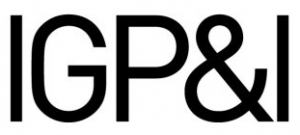A number of Regulations and Decisions were published but of particular significance for Clubs and their Members is Council Regulation (EU) 2022/1904 which further amends Council Regulation 2014/833.
As well as imposing an asset freeze on a number of new individuals and entities, the Regulation contains the following provisions of particular relevance to shipping:
Russian Maritime Register of Shipping
The Russian Maritime Register of Shipping has been added to the list of Russian state-owned entities as listed in Annex XIX of the Regulation and subject to the restrictions under Article 5aa. EU entities are consequently prohibited from directly or indirectly engaging in any transaction with the Russian Maritime Register of Shipping, but there is a wind-down period until 8 January 2023 to allow for the execution of any contracts entered into before 7 October 2022 or any ancillary contracts necessary for the execution of those contracts.
Furthermore, vessels certified by the Russian Maritime Register of Shipping cannot call at EU ports after 8 April 2023 in accordance with Article 3ea.
Iron and steel products
The list of iron and steel products as set out in Annex XVII where transport to any country, including non-EU states, is prohibited in accordance with Article 3g has been significantly expanded.
New restrictions have also been added which prohibit from September 2023 the import or purchase of iron and steel products listed in Annex XVII which have been processed in a third country but contain iron and steel of Russian origin.
All these provisions include a prohibition on EU entities providing insurance and reinsurance services. Members are therefore reminded that as a consequence, even if a Member is not directly impacted by the Regulation (because, for example, they are domiciled outside the EU), the Club may not be able to provide cover for engaging in these activities.
There are additional exemptions and derogations relating to certain iron and steel products.
Lists of products
The lists of prohibited products which generate significant revenue for Russia (Article 3i) as listed in Annex XXI and those which could contribute to the enhancement of Russia’s industrial capacity (Article 3j) as set out in Annex XXIII have both been significantly expanded. Certain commodities in both Annexes are however subject to a wind-down period until 8 January 2023 to allow for the execution of any contracts entered into before 7 October 2022 or any ancillary contracts necessary for the execution of those contracts.
Crude and petroleum products
Some important clarifications around the carriage of Russian crude oil and petroleum products (collectively “Russian oil”) have been provided and the Regulation also sets out how EU sanctions will interact with the planned G7 price cap mechanism.
Members will recall that the carriage of Russian crude oil (CN code 2709 00) and Russian petroleum products (falling under CN code 2710) into the EU, and the provision of (re)insurance in respect of the carriage of such cargoes is prohibited under Article 3m but with an exemption until 5 December 2022 and 5 February 2023 respectively under certain circumstances.
The provision of insurance and reinsurance for the carriage of these cargoes to non-EU countries was likewise prohibited but with an exemption under Article 3n until 5 December for both groups of cargoes providing the insurance contract was in place before 4 June 2022, i.e. the prohibition on insurance and reinsurance for petroleum products would have incepted on 5 December 2022 despite carriage being permissible. Further details can be found in Member Circular no. 6/2022 regarding the EU’s sixth sanctions package dated July 2022.This lacuna has been addressed by the Regulation and there is now an extended wind-down period for insurance and reinsurance relating to the transport of Russian products falling under CN 2710 until 5 February 2023.
Article 3n(3) also helpfully clarifies that claims relating to the carriage of Russian crude before 5 December 2022 and petroleum products before 5 February 2023 are payable, provided that the insurance contract was entered into before 4 June 2022 and that cover has ceased by the end of the relevant wind-down period.
G7 price cap mechanism
Briefly, Members may be aware that the G7 are implementing a mechanism designed to dampen any oil price increases by maintaining the export of Russian oil onto world markets but limiting Russia’s revenue from those sales by implementing a yet to be decided cap on the sale price. Insurers and reinsurers will be allowed to provide cover for the carriage of any cargoes sold at or below the cap price but conversely prohibited from doing so for cargoes sold at above the cap price.
Details of exactly how the mechanism will work are still emerging and the Club will update Members further in due course. However, the Regulation sets out how the mechanism will interact with EU sanctions.
As it presently stands, although the carriage of Russian crude and petroleum products into the EU will be prohibited from 5 December 2022 and 5 February 2023 respectively, carriage of such cargoes from Russia to third countries will be permitted (but EU insurers and reinsurers cannot provide cover for doing so).
If the EU Council agrees a price cap and publishes this via an amending Council Decision, then such carriage will be generally prohibited as from those dates, but EU vessels will permitted to transport Russian oil to non-EU destinations and EU insurers and reinsurers will be able to provide cover for such carriage by EU and non-EU vessels alike, provided that the purchase price per barrel does not exceed the published price cap.
If the price cap changes thereafter, there will be a 90-day wind-down for contracts entered into before the date of the price cap change (assuming those contracts satisfy the previous price cap).
Finally, it has been clarified that the prohibitions in Article 3n does not apply to the provision of pilotage services necessary for maritime safety and to the carriage of certain cargoes from the Sakhlin-2 project to Japan as set out in Annex XXIX.
Members are reminded that EU sanctions apply in the following circumstances: within the territory of the Union, including its airspace; on board any aircraft or any vessel under the jurisdiction of a Member State; to any person inside or outside the territory of the Union who is a national of a Member State; to any legal person, entity or body, inside or outside the territory of the Union, which is incorporated or constituted under the law of a Member State; to any legal person, entity or body in respect of any business done in whole or in part within the Union.





